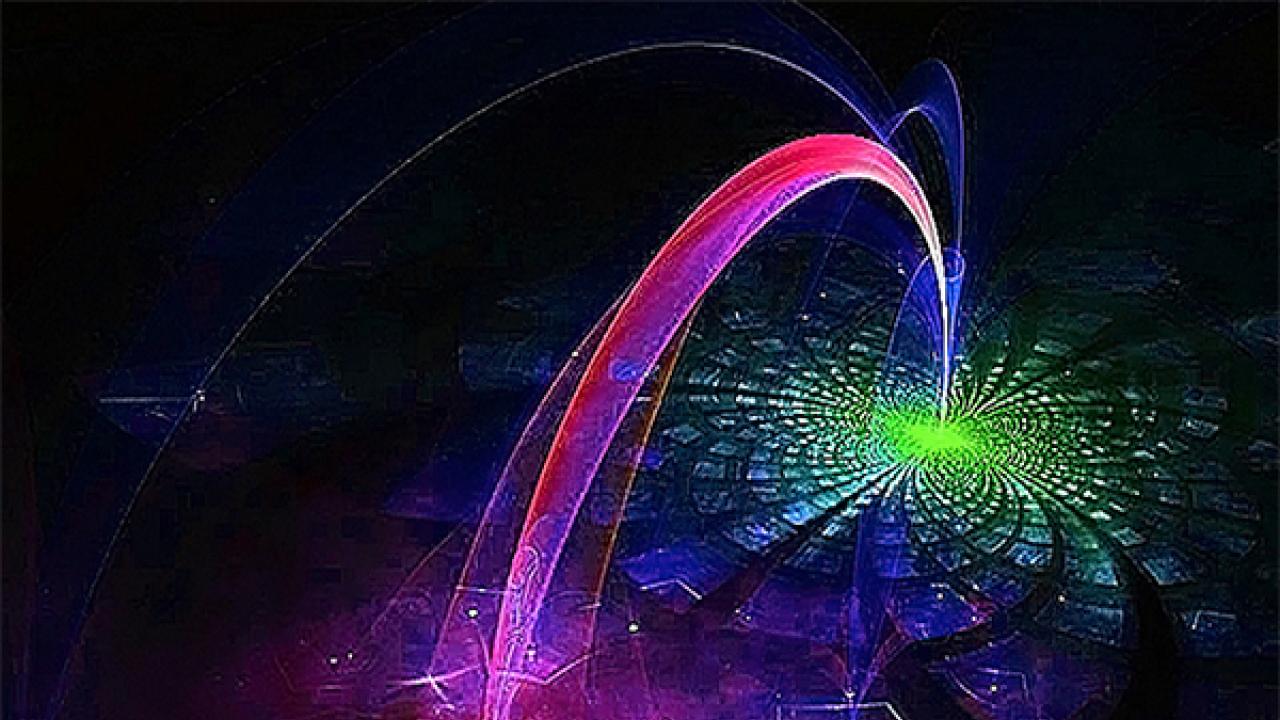
You are probably familiar with how hot computers can get when they're working hard. But we rarely think about the exact relationship between that work and that heat. Now scientists are thinking about how heat, work, and information relate in quantum computers, because as quantum computers become bigger and more viable, heat generation has to be kept low to operate. To help study this, a team that includes an ICTP theoretical physicist has just measured heat at a quantum level.
Why is this exciting? It goes back to an idea proposed by physicist Rolf Landauer in the 1960s: that information is fundamentally physical and can be manipulated according to the laws of physics. This means that if an irreversible computation is made, like erasing information, destroying that physical bit of information results in an equivalent uptick in entropy, which is released as heat.
This principle was only just recently measured in classical computers, but its effects are quite important for scientists designing quantum computers. Quantum computers were conceived as machines that follow the laws of quantum physics instead of classical physics, meaning that every aspect is imbued with the weirdness of quantum mechanics, such as quantum entanglement effects. Quantum computers have the potential to be very powerful as a result, solving problems that classical computers cannot.
But for quantum computers to work, they need to be kept at temperatures near absolute zero. The molecules being manipulated to store information and perform computations turn into a chaotic mess if heat energy is added to the system, rendering quantum computations very difficult. This is one of the many reasons ICTP scientist John Goold is interested in quantum thermodynamics, and has written two theoretical papers detailing potential ways to measure Landauer's Principle and fundamental heat generation in quantum computers. These drew the attention of experimentalists at the Centro Brasileiro de Pesquisas Físicas in Rio Di Janerio, Brazil, and resulted in a recent paper outlining the results of an experiment that brought Goold's theoretical ideas to life.
"It's probably the first measurement of heat at a quantum level," says Goold. The team measured "the heat coming off a fundamental gate, many of which would eventually constitute a computer. Known as qubits, these are the primordial quantum bits of these future computers."
But while simply measuring the heat released when information is destroyed sounds simple, in quantum computers it's tricky. "In order to actually measure something like heat in a quantum computer it requires you to disturb the system," Goold explains, which, because of the quantum nature of a quantum computer, would mean the loss of all the information that system holds. "So experimentally it presents a challenge. Our protocol avoids the need to take a direct measurement of the system, by bringing in another system and measuring that."
In essence, the team used three qubits to measure the heat of one. One qubit was the system, a second qubit was the environment for that system. When a simple computation was done with these two qubits, Goold's team made the third reflect what was going on, and then measured the third to find the heat resulting from this computation. "I'm able to do a particular type of manipulation on the bystanding qubit, the third qubit, that allows me to read out the heat that comes out of this process," he says.
This paper provides a proof of principle only, demonstrating an ingenious way to measure heat at a fundamental quantum level for two-qubit systems. But in the quest to make quantum computers more powerful and more viable tools, it's an important step. "Quantum computers are supposed to be the computers of the future," Goold says. "We need to basically understand how heat generation can be minimized. And we need ways to study that, and this method helps provide a way."
--Kelsey Calhoun
Reference:
J. P. S. Peterson, R. S. Sarthour, A. M. Souza, I. S. Oliveira, J. Goold, K. Modi, D. O. Soares-Pinto, L. C. Céleri Experimental demonstration of information to energy conversion in a quantum system at the Landauer limit. Proceedings of the Royal Society A. 13 April 2016 DOI: 10.1098/rspa.2015.0813
Related theoretical papers:
J. Goold, U.Poschinger, K. Modi, Nonequilibrium Quantum Landauer Principle Phys. Rev. E 90, 020101(R) (2014); DOI http://dx.doi.org/10.1103/PhysRevLett.114.060602
J. Goold, M. Paternostro, K. Modi, Measuring the heat exchange of a quantum process Phys. Rev. Lett. 114, 060602 (2015); DOI http://dx.doi.org/10.1103/PhysRevE.90.020101
















